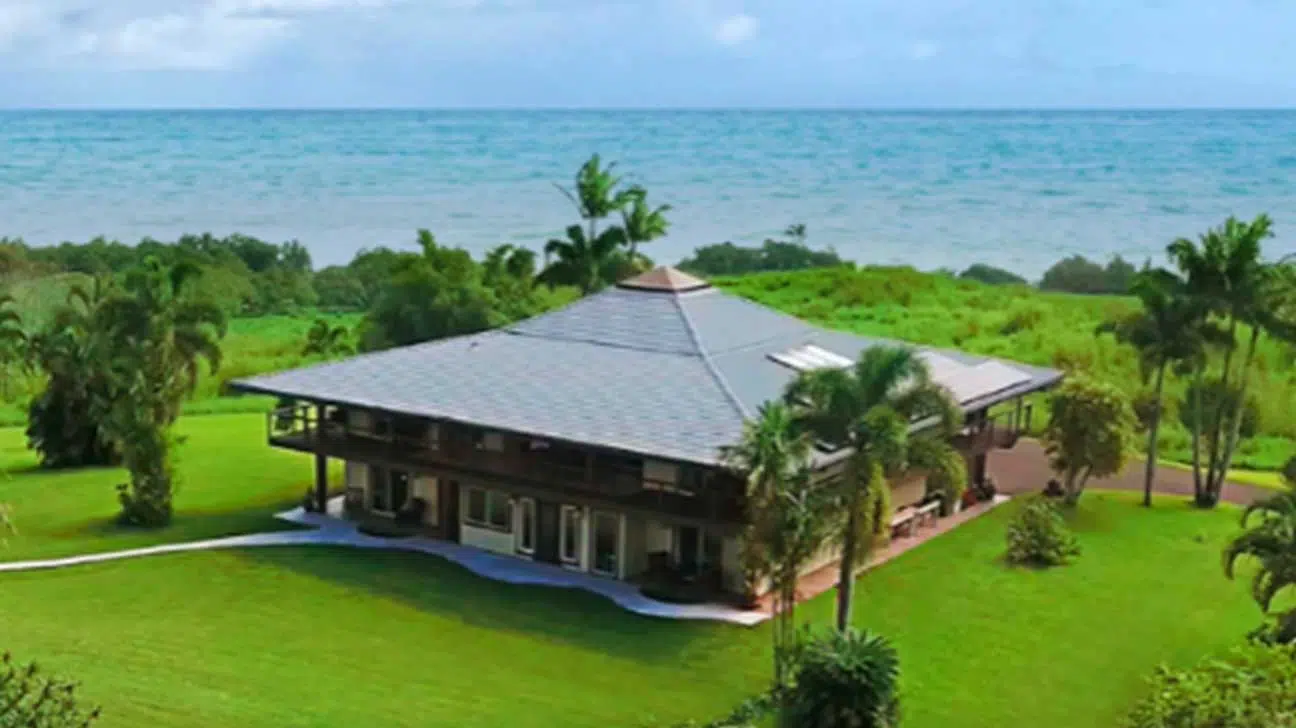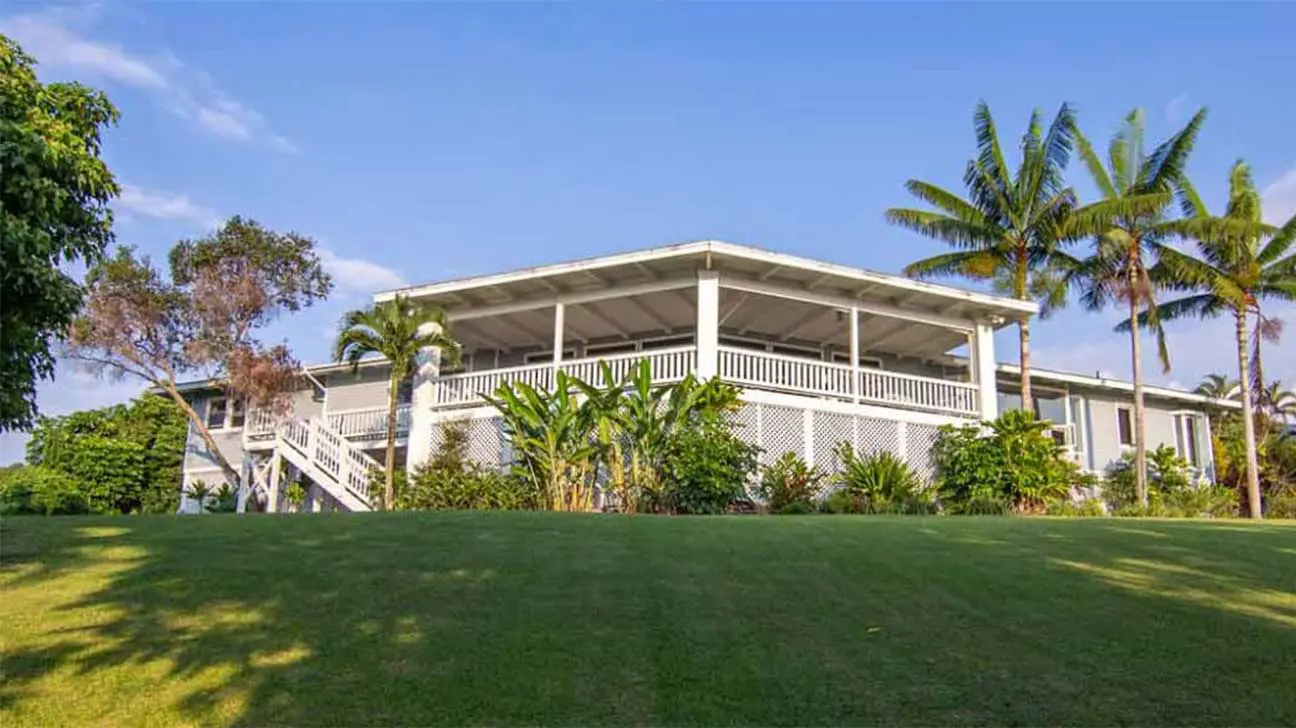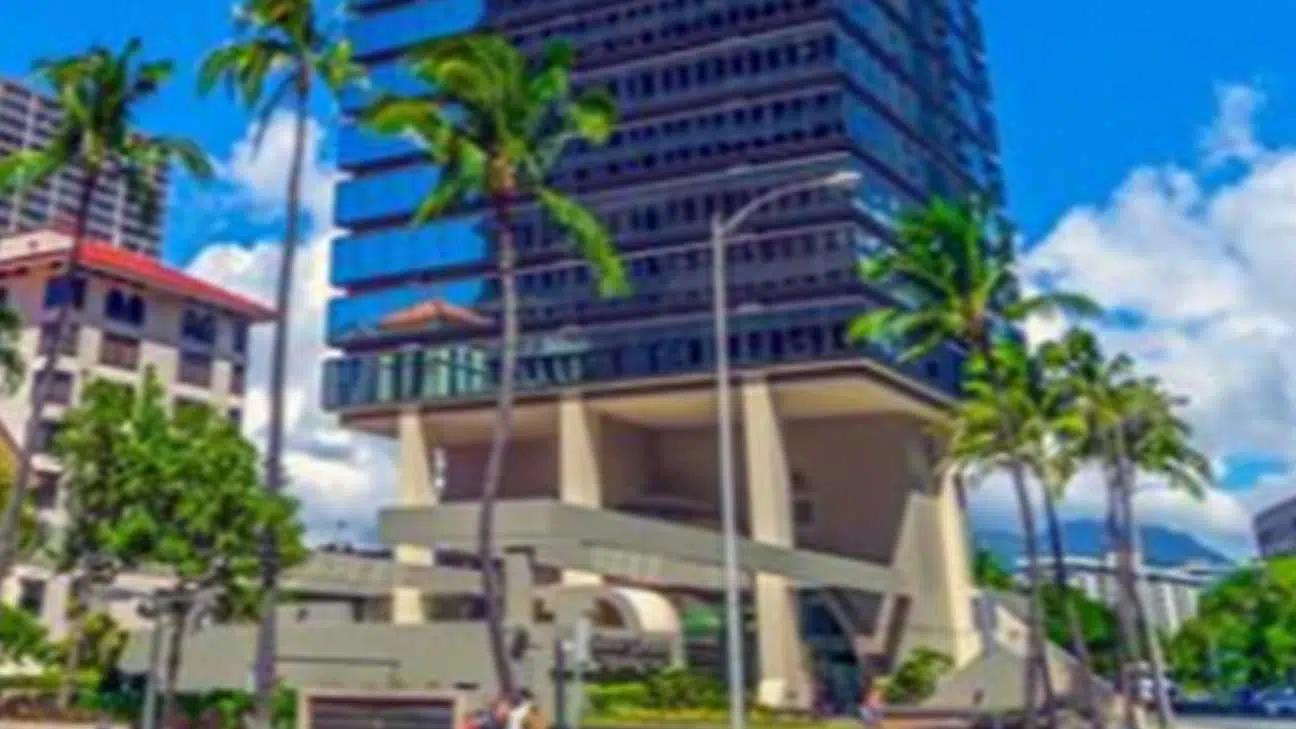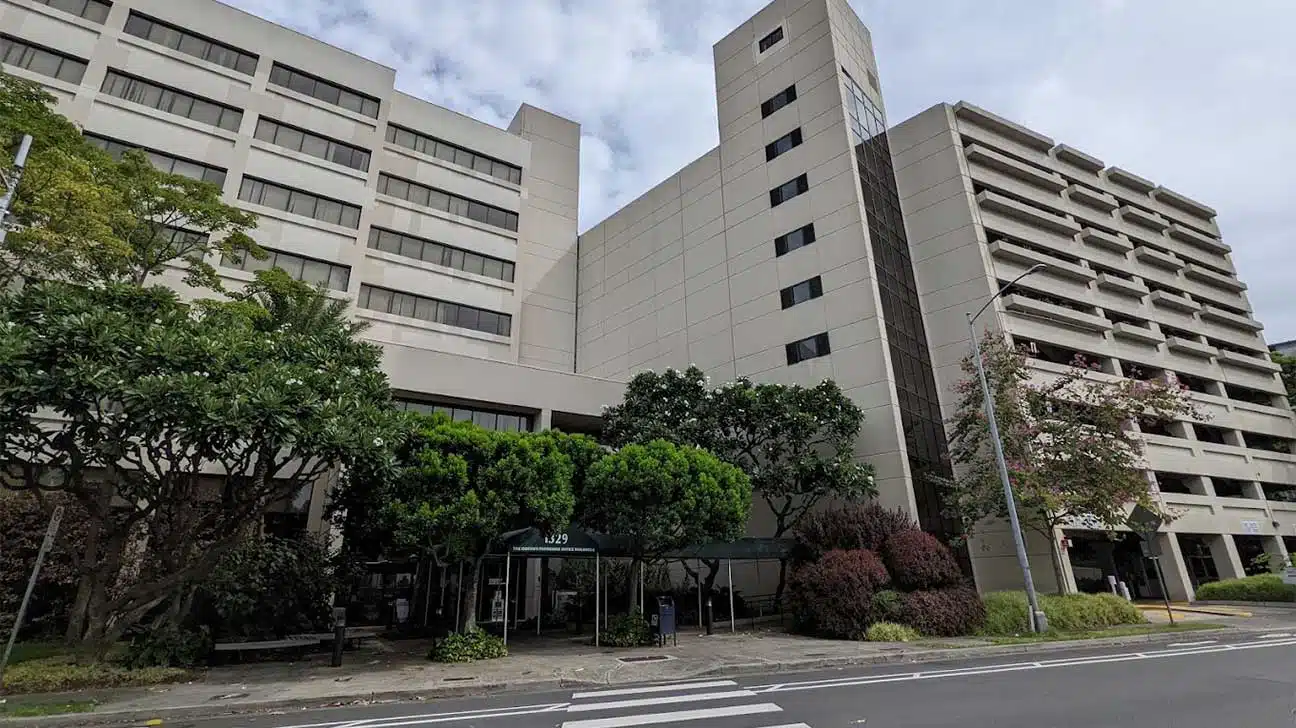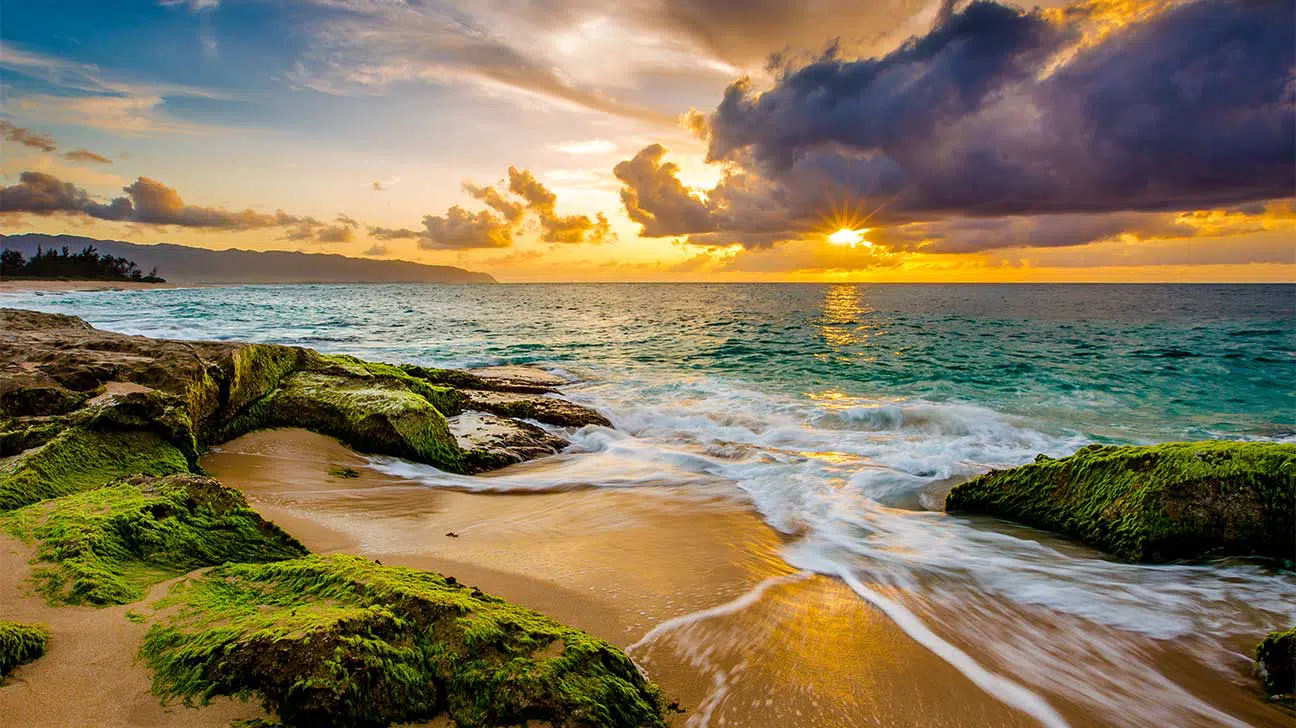
When a person has co-occurring mental health and substance use disorders, this is known as a dual diagnosis and can negatively impact someone’s ability to recover.
Dual diagnosis recovery is possible at some drug and alcohol addiction treatment centers in Hawaii and typically involves treatment plans using therapy, medications, and addiction services.
List Of Dual Diagnosis Treatment Centers In Hawaii
When you’re searching for a treatment program that specializes in mental health and addiction services, you should choose those which feature trusted credentials, like the ones on this list.
Marks of quality can include accreditation, certifications, licensure, high Google ratings, or other marks.
1. Exclusive Hawaii Rehab, Hakalau, Hawaii
This is a luxury residential addiction treatment center near Hilo, HI, that treats people with substance abuse and co-occurring anxiety, depression, trauma, or mental health disorders.
This individualized drug and alcohol rehab program features:
- Commission on Accreditation of Rehabilitation
- Facilities (CARF) accreditation
- Alcohol and Drug Abuse Division (ADAD) accreditation
- membership in the National Association of Addiction
- Treatment Providers (NAATP)
- a 4.5-star Google rating
The non-12-step dual diagnosis treatment program uses:
- psychiatric medication management
- psychological therapies
- education and life skills training
- social and family support
Location and contact information:
31-631 Old Mamalahoa Hwy.
Hakalau, HI 96710
(808) 775-0200
2. Hawaii Island Recovery, Kailua-Kona, Hawaii
This drug and alcohol abuse rehab facility near Kalaoa, HI treats mental health, substance abuse, and co-occurring disorders.
They offer residential treatment, medical detox, aftercare, outpatient treatment, experiential therapy, and group therapy method.
Clients can find treatment for these co-occurring mental health conditions:
- anxiety
- depression
- post-traumatic stress disorder (PTSD)
- attention-deficit/hyperactivity disorder (ADHD and ADD)
Substance use disorder treatment here is backed by:
- LegitScript certification
- Joint Commission accreditation
- National Association of Addiction Treatment Providers
- (NAATP) membership
- CARF accreditation
Location and contact information:
75-170 Hualalai Rd.
Ste. C311a
Kailua-Kona, HI 96740
(866) 390-5070
3. Lokahi Treatment Centers, Waikoloa Village, Hawaii
This drug rehab center in Waikoloa Village, HI, provides a full continuum of dual diagnosis substance abuse and mental health treatment and prevention services.
These behavioral health services for mental illness and drug addiction include:
- assessment
- outpatient treatment
- gender-specific and coed groups for substance abuse treatment
- anger management programs for adults, adolescents, and children
- domestic violence intervention classes
- psychiatric evaluations
- family, individual, and couples counseling
- medication management
Trusted qualifications of this drug use program are:
- CARF accreditation
- evidence-based treatment for addiction and mental health issues
Location and contact information:
68-1845 Waikoloa Rd.
Ste. 224-b
Waikoloa Village, HI 96738
(808) 883-0922
4. Po’ailani, Kaneohe, Hawaii
This is a dual diagnosis drug rehab center in Kaneohe, HI, providing residential treatment, outpatient programs (OP), day treatment, intensive outpatient programs (IOP), and other services.
Trusted features of this drug rehab center include:
- evidence-based treatment
- positive client reviews
You can get treatment for substance abuse problems and co-occurring mental health disorders such as bipolar disorder, PTSD, obsessive-compulsive disorder (OCD), and schizophrenia.
Location and contact information:
45-567 Pahia Rd.
Kaneohe, HI 96744
(808) 263-3500
5. Providence Treatment Honolulu, Honolulu, Hawaii
Providence Treatment is a behavioral health and addiction treatment provider in Honolulu, HI, with other treatment facilities in Pennsylvania.
In Honolulu, you can expect co-occurring disorder treatment supported by:
- Joint Commission accreditation
- National Association for Alcoholism and Drug Abuse Counselors (NAADAC) membership
A few of the evidence-based treatment services here include:
- individual, couples, family, and group therapy
assessment - outpatient treatment
- eye movement desensitization and reprocessing (EMDR)
- cognitive behavioral therapy (CBT)
- dialectical behavior therapy (DBT)
- telehealth
Location and contact information:
1188 Bishop St.
Ste. 1008
Honolulu, HI 96813
(484) 383-5033
6. The Queen’s Medical Center, Honolulu, Hawaii
This is a hospital that provides treatment for substance abuse near Halawa, HI, plus treatment for co-occurring mental health issues.
Their outpatient dual diagnosis treatment program involves:
- individual and group counseling
- skill-building groups
- mental health management
- relapse prevention
- cognitive restructuring
- occupational therapy and work readiness
- 12-step meetings
The Queen’s Medical Center features the following credentials:
- multiple awards and recognitions from the Joint Commission and other organizations
- 3.5 stars on Google
- evidence-based treatment
The health center accepts Medicaid, private health insurance, and other health care plans.
Location and contact information:
1301 Punchbowl St.
Honolulu, HI 96813
(808) 691-1000
Types Of Treatment For Co-Occurring Disorders At Rehab Centers In Hawaii
Treatment for dual diagnosis typically revolves around therapeutic approaches that can address substance use disorders and mental health issues at the same time.
Therapeutic modalities for dual diagnosis include:
- therapeutic communities
- cognitive behavioral therapy
- assertive community treatment
- dialectical behavior therapy
- contingency management
Other approaches may include medication to treat a serious mental health disorder if warranted.
How Common Is Dual Diagnosis In Hawaii?
Approximately 8 million adults in America have a dual diagnosis, according to the National Institute on Drug Abuse (NIDA).
It further reports that about 20 million adults have a substance use disorder and about 42 million have a mental illness.
In Hawaii, about 26% of adults reported having anxiety or depression during the first half of February 2023.
Choosing A Dual Diagnosis Treatment Program In Hawaii
You can choose between several different short-term and long-term treatment programs for dual diagnosis treatment.
Consider the following when selecting your treatment program.
Specialization In Dual Diagnosis Treatment
The first and most important step is finding a treatment facility that provides a specialized treatment program for people with co-occurring disorders.
This will ensure that you get treatment for both disorders and learn how to manage the symptoms together.
Range Of Treatment Services Available
You’ll want to choose a rehab program that has a range of care available.
Services to look for in a dual diagnosis program include:
- behavioral therapy
- family programs
- psychological and substance abuse assessments and evaluations
- continuing care
- detoxification if needed
- medication management
You should also find a rehab center that provides the level of care you need, such as standard OP or a partial hospitalization program (PHP), or short-term inpatient or long-term residential services.
Types Of Therapies Used
Your dual diagnosis treatment program should feature one or more behavioral therapies.
Evidence-based therapies to look for include:
- CBT
- DBT
- motivational interviewing
- EMDR
Health Insurance
Choose a rehab facility that accepts your health insurance plan.
If you’re using Medicaid or Medicare, you’ll need to find a treatment center that works with government-funded health care, as not all rehab centers do.
Hawaii Dual Diagnosis Rehab Center FAQs
Find answers to frequently asked questions about addiction and mental health treatment in Hawaii.
Do Hawaii Dual Diagnosis Rehab Facilities Accept Health Insurance?
Most Hawaii dual diagnosis treatment programs accept major health insurance plans for addiction care. Some may require self-payment.
Can I Get Dual Diagnosis Treatment For Any Substance Addiction In Hawaii?
Most rehab centers in Hawaii will offer dual diagnosis treatment for a range of substances including cocaine addiction, opioid dependence, methamphetamine use, alcohol misuse, and others.
What Are Some Of The Most Common Mental Health Disorders Treated In Dual Diagnosis Facilities In Hawaii?
The most common dual diagnoses treated in Hawaii are addiction and depression, anxiety, OCD, PTSD, personality disorders, and bipolar disorder.
Find Dual Diagnosis Treatment Today
If you or a loved one are battling a dual diagnosis, you can receive treatment today. Call us now to learn more about your treatment options.
Updated on April 5, 2023
Addiction Resource aims to provide only the most current, accurate information in regards to addiction and addiction treatment, which means we only reference the most credible sources available.
These include peer-reviewed journals, government entities and academic institutions, and leaders in addiction healthcare and advocacy. Learn more about how we safeguard our content by viewing our editorial policy.
- Hawaii State Department of Health
https://health.hawaii.gov/amhd/files/2013/06/COSIG_Needs_Assessment_All_Phase_Report.pdf - National Institute of Mental Health
https://www.nimh.nih.gov/health/topics/substance-use-and-mental-health - National Library of Medicine: MedlinePlus
https://medlineplus.gov/dualdiagnosis.html#:~:text=Someone%20with%20a%20dual%20diagnosis,you%20emotional%20and%20social%20support. - Substance Abuse and Mental Health Services Administration
https://www.samhsa.gov/medication-assisted-treatment/medications-counseling-related-conditions/co-occurring-disorders

